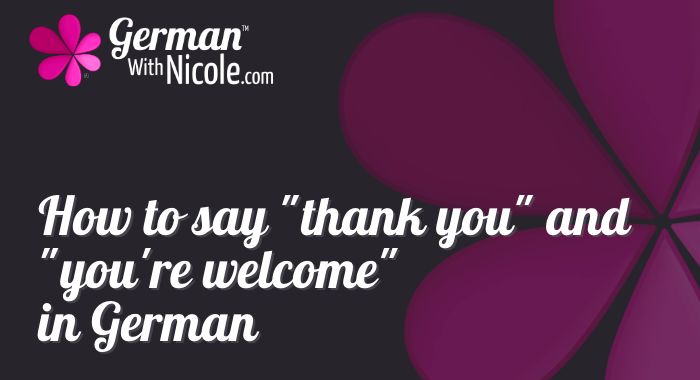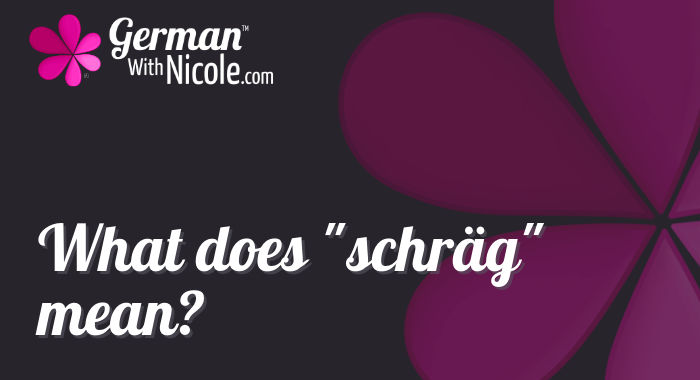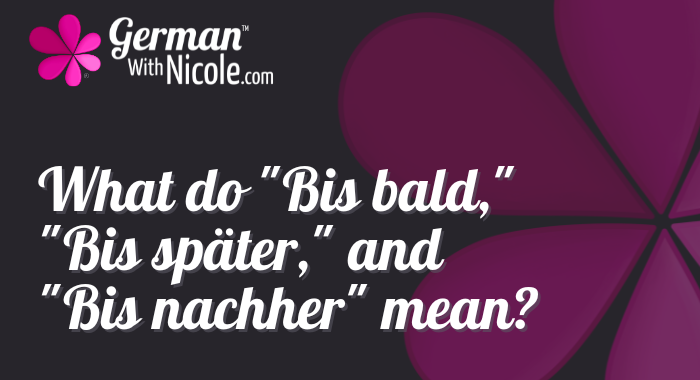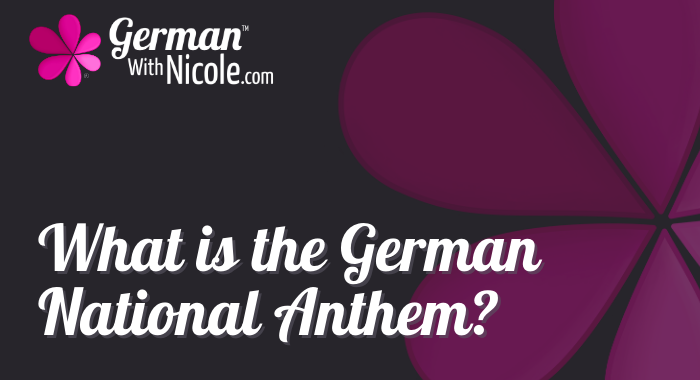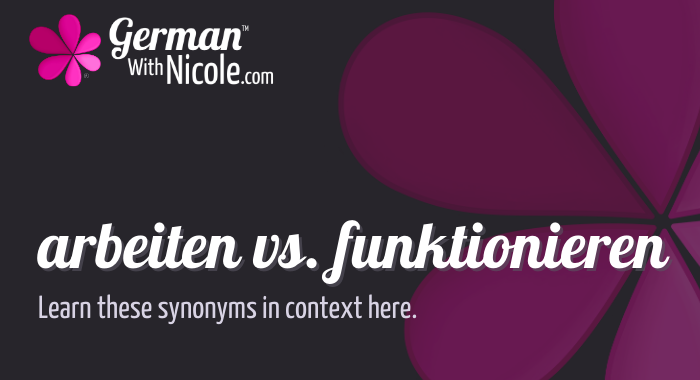das Blog
A1
5 Myths on How to Learn German Vocabulary-Busted!
A lot of what you might read on the internet on how to learn German vocabulary words is really a lot of hot air & hooey.
In this episode we'll bust 5 myths on vocabulary learning and give you a clearer picture of why vocabulary learning is important.
After all, if you don't know what the words mean...you'll be up a creek without a paddle.
The 5 Myths:
-
You only need to learn 3,000 words to truly speak German!
-
Vocabulary isn't as important as grammar.
-
Learning vocabulary is as bo…
German in 2021: ein Rückblick (a retrospect)
What did we cover in German in 2021?
Really a lot!
From the podcast episodes to blog posts, and in each week of the Weekly German Practice, we covered a huge amount of material this year!
It's good to take a step back from time to time and to 'zoom out' so you can see the big picture.
Once you do that, you'll see exactly how much progress you've made this year, and I hope this episode is helpful.
PLUS you'll hear a run-down of all the countries that listeners to this podcast live in.
It's …
German Christmas Markets
Visiting a German Christmas Market is a true feast for the senses. It may forever change your expectations of the holiday season.
In this episode you'll learn about:
-
the main point of the Weihnachtsmarkt
-
who to go with
-
the various beverages available
-
what you can eat there
-
what you can shop for there
I might not be able to bring you a Weihnachtsmarkt, but I can bring you an Adventskaffee (an Advent coffee hour) plus a booklet of holiday-themed puzzles for German le…
7 Holiday Greetings in German, from Hanukkah through Christmas and into the New Year
Holidays mean greetings.
In Germany that means many holiday greetings. For different people.
When do you say what to whom?
Learn in this episode of the GermanWithNicole.com Podcast:
-
How to wish someone a nice Advent in German
-
How to say Happy Hannukah in German
-
How to say Good Yule in German
-
How to say Happy Holidays in German
-
How to say Merry Christmas in German
-
How to say Happy New Year in German
-
and a couple more.
AND you'll learn when to say which g…
How to say "thank you" and "you're welcome" in German
Learning to say thank you and you're welcome in German is really important, as it's part of good manners in German culture and it's also really easy to learn.
Danke. = Thank you.
Bitte. = You're welcome.
But do you hesitate to say them?
I used to hesitate, too, until I attended a soccer game (Schalke 04 - Glück auf!) and the crowd taught me the importance of "Danke" and "Bitte."
Ein Fußballspiel, eine Bratwurst, danke und bitte.
Los geht's!
N.B. The A1-A2-B1 German Sentence Structure…
What does "schräg" mean?
You probably enjoy those lists of German words that can't be translated into English as much as I do.
They go around the internet again and again, but have you noticed they're usually the same words?
This word, schräg, never shows up on one, and it deserves to be on every list.
In this episode you'll learn all about the word schräg.
You'll learn what it means, how to pronounce it, and how to use the word schräg.
Und machen Sie Ihre Hausaufgaben! (Do your German homework.)
N.B. The A1-…
What do "Bis bald," "Bis später," and "Bis nachher" mean?
How do you tell your friend you're going to see her soon in German?
There are so many choices, and in German they're not direct translations.
In fact, so many German learners get this wrong, I use this topic as a barometer to tell me how well someone speaks German.
Today we'll break down and put together the many forms of:
-
Bis bald!
-
Bis später!
-
Bis nachher!
-
Bis Samstag!/Bis um 11 Uhr!
You'll hear your homework for this week, too, natürlich.
N.B. The A1-A2-B1 German…
How Does German Culture Compare to US Culture?
Frequently, very frequently I find myself confused by living in the US again.
The culture is simply so different from German culture, which is where I began my post-grad school life.
I couldn't put words to all of it, but then a friend of mine asked me recently, "Of all the places you've been, where did you have the most culture shock?"
It took me weeks to sort out my answer.
After considering the 21 countries and perhaps 18 states I've visited, I've finally got my answer.
In this episode w…
What is the German National Anthem?
The German National Anthem is known as the Nationalhymne or Das Lied der Deutschen, "The Song of the Germans."
In today's episode of the podcast for German learners you'll hear:
-
the current national anthem
-
a bit of its history
-
the German National Anthem sung in German (by yours truly!)
It's really important to note the specifics of this Anthem because there is a strong connection to German history, one that is to be remembered and respected.
Besides, wouldn't you like to im…
arbeiten versus funktioneren
When should you use 'arbeiten' and when should you use 'funktionieren'?
All the answers are in this episode!
You'll learn these two verbs in the context of wine harvest, too, because it's wine harvest time.
Learning to differentiate synonyms in German works really well when you use context.
This way you can easily build a picture in your mind that will help you for all of your German learning.
If it helps, you can even draw yourself a little sketch of a scene you'll hear in this episode.
A…
Categories
- A1 (69)
- A2 (54)
- B1 (46)
- B2 (23)
- C1 (22)
- Deutsch lernen (78)
- Einkaufen (15)
- Essen (12)
- Grammatik (23)
- Hören (14)
- Landeskunde und Kultur (49)
- Lesen (11)
- Musik (5)
- Nachrichten (4)
- Podcast (61)
- Pronunciation (3)
- Schreiben (3)
- Schwäbisch (4)
- Spiele und Spaß (Games and Fun) (12)
- Sprechen (13)
- Vokabeln (39)
- Video (11)




